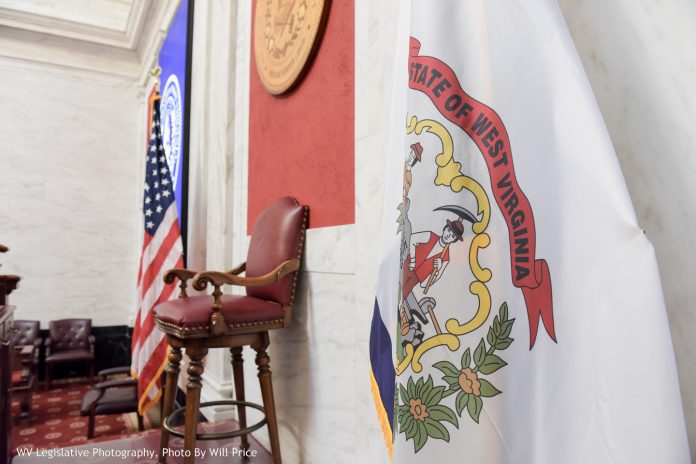As of 4 PM, Wednesday, February 16, 2005, the eighth day of the 2005 Regular Session, 207 bills have been introduced in the Senate.
Of those, Senate Bill 146 has been passed by this body. This measure would establish the Unborn Victims of Violence Act which recognizes an embryo or fetus as a distinct unborn victim of certain crimes of violence. Exceptions to this include the instance to which the pregnant woman, or a person authorized by law to act on her behalf; also exempted are medical, health care personnel or scientific research personnel while performing lawful procedures involving embryos that are not in a stage of gestation. The bill will now go to the House for its consideration.
Bills Introduced In the Senate
Senate Bill 7 would provide for criminal history checks for people not employed by county boards of education, but who work directly with children in schools from kindergarten through 12th grade.
Senate Bill 10 would make the destruction of a landlord’s residential property for a criminal offense. The bill states that damage greater than $300 but less than $1,000 would constitute a misdemeanor and damage greater than $1,000 would constitute a felony.
Senate Bill 16 would exempt veterans’ organizations from certain sales tax provisions. The measure would exempt the sale of goods or services by any corporation or organization with a primary goal of promoting, supporting or publicizing military veterans’ causes, interests or affairs on behalf of and for the benefit of veterans, veterans’ organizations or veterans’ groups from consumer sales and service tax.
Senate Bill 25 would establish a social workers’ code of ethics. The provisions of the Code would include: promoting the general welfare of society, facilitating informed participation by the public in shaping social policies and institutions, and providing appropriate professional services in public emergencies to the greatest extent possible.
Senate Bill 48 would add the Equitable Compensation Act to Code language pertaining to salaries, wages and other benefits. It would establish a state minimum salary supplement for professional personnel holding a nationally recognized professional certification. The legislation would state that national professional certification is a valuable professional credential for both public and private employment.
Senate Bill 134 would give a tax credit to employers who provide or pay for child day care services for their employees’ dependent children. The credit would be assessed to both the employer’s personal income and corporate net taxes.
Senate Bill 147 would limit access to certain chemicals used in the production of methamphetamines. The bill would require that any person purchasing a substance that could be used in the production of methamphetamines to produce a photo ID and sign a form noting the date of the transaction and the individual’s signature. The measure also would limit the amount of medicines sold that could be used to make methamphetamines without a prescription from a physician.
Senate Bill 159 would allow for the formation of metro governments. Metro governments would be created by the consolidation of political and corporate functions of a county and a municipality or municipalities located in that area. This bill would allow for the consolidation of smaller governing bodies to merge with other governing bodies for more efficiency.
Senate Bill 167 would create a tax incentive for the creation, construction or enlargement of tourism attractions or amenities. The credit would operate to allow the taxpayer to recover up to 25 percent or, in the case of bed and breakfast facilities, 50 percent of qualified investments in a tourism attraction by offsetting up to 80 percent of consumers sales and service tax collected by the taxpayer from customers over a period of either five or 10 years.
Senate Bill 171 would create a bill of rights for foster parents. Some of theses rights would include training and support for the purpose of improving skills in providing daily care and meeting the special needs of the child in foster care along with assessing needs related to foster care providers.
Senate Bill 179 would divide the Department of Health and Human Resources into two departments, the Department of Health and the Department of Human Resources. The bill would be made effective on July 1, 2005.
Senate Bill 190 would allow Supreme Court Justices to be elected on a nonpartisan ballot. An election for the purpose of electing a Justice or Justices of the Supreme Court of Appeals would be held on the same date as the general election, as provided by law.
Senate Bill 193 would systematically arrange the creation of a multi-disciplinary citizen panel to review the policies, procedures, and when appropriate, specific cases handled by Child Protective Services. The proceedings and records of the citizen review panel would be confidential and privileged and may not be subject to subpoena.
Senate Bill 199 would look to encourage the improvement of land adversely affected by mining, oil and gas extraction and to aid in the prevention and abatement of the pollution of rivers and streams. The act also would promote the environmental values of this State by limiting the liability which could arise as a result of the voluntary reclamation or clean up of abandoned lands or water sources. The bill also provides a procedure for the Department of Environmental Protection to approve projects.

